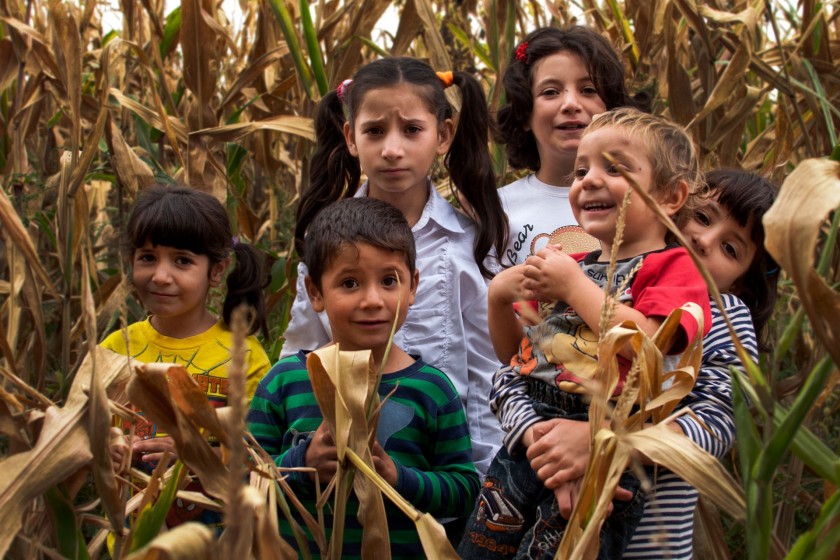
Aknashen Mother of Six: “What’s important isn’t the ‘tomik’ but the love and warmth inside”
Marine Martirosyan
Rain from the previous day still filled the potholed road leading to Aknashen, a village in Armenia’s Armavir Province.
Armen’s Volga, so old that it seemed the engine would fall out at every turn, had a tough time avoiding the puddles. Flies swarmed inside the car. Armen said it was due to the weather.
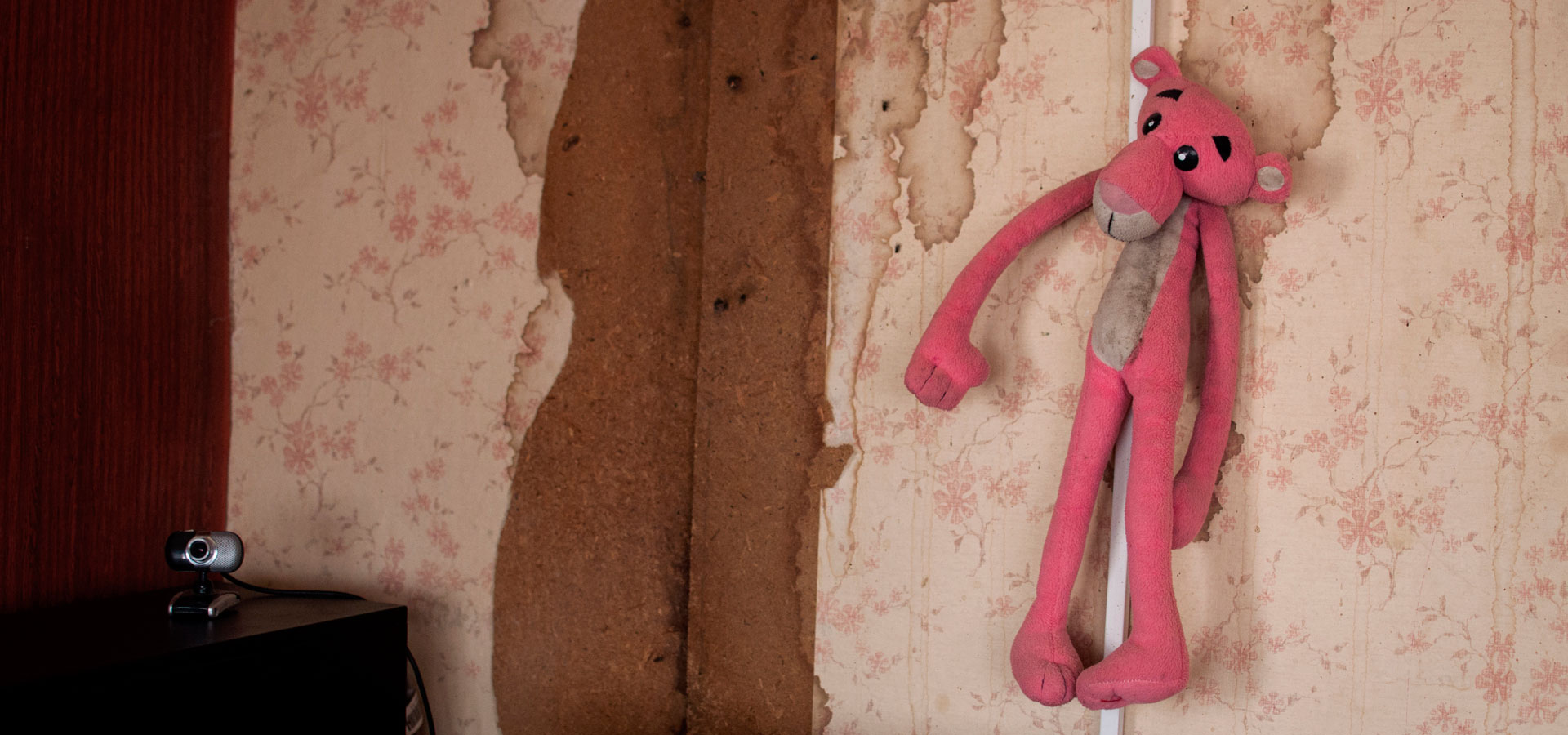
Armen Zakaryan, a father of six, bought the car seven years ago. While he says something breaks down daily, it’s enough to make a living transporting fruit and vegetables to the nearby Etchmiadzin market for sale. His work day starts at 6:30am. The produce he sells is usually that grown by fellow Aknashen villagers and his own, if the harvest has been good. Some days, he returns with no money to show, other days he can make 2,000 – 3,000 drams ($4-$6). The Volga is parked by the Soviet –era metal trailer (tomik) the family lives in. There’s a ‘for sale’ on the rear of the trailer. Slippers and shoes are placed in a corner.
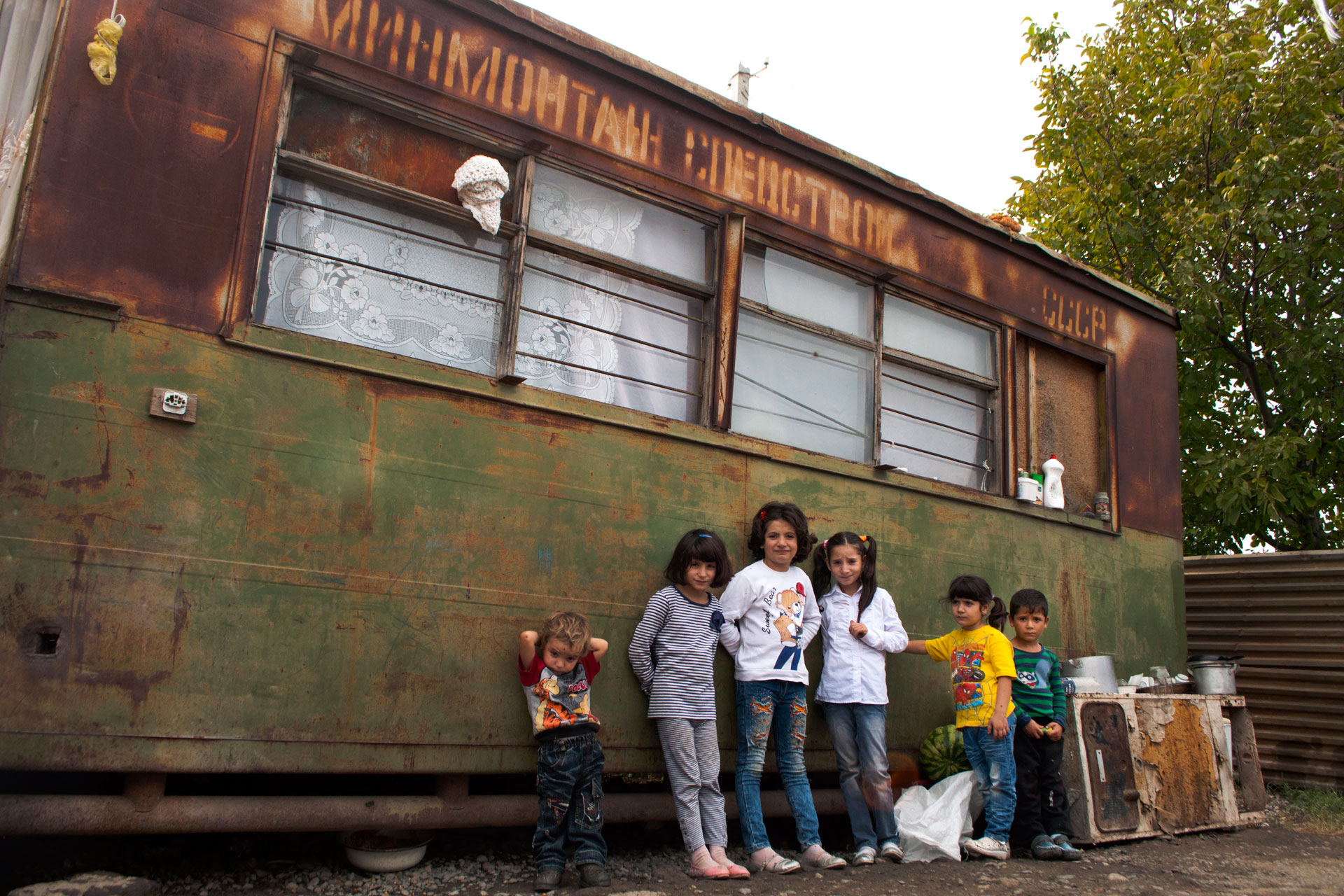
Armen’s six children are standing in front. They take some time to respond to our greeting. Armen’s wife, Elmira Karapetyan, takes notice and says the kids are quite shy and aren’t that chatty. We ask what their names are. Elmira responds – Vera, Anahit, Gayaneh, Ani, Norayr and Narek. Vera is the eldest and attends fifth grade. Anahit’s in fourth grade, Gayaneh’s in third grade and Ani’sin first. Norayr is 4.5 years-old and Narek, 2.5.
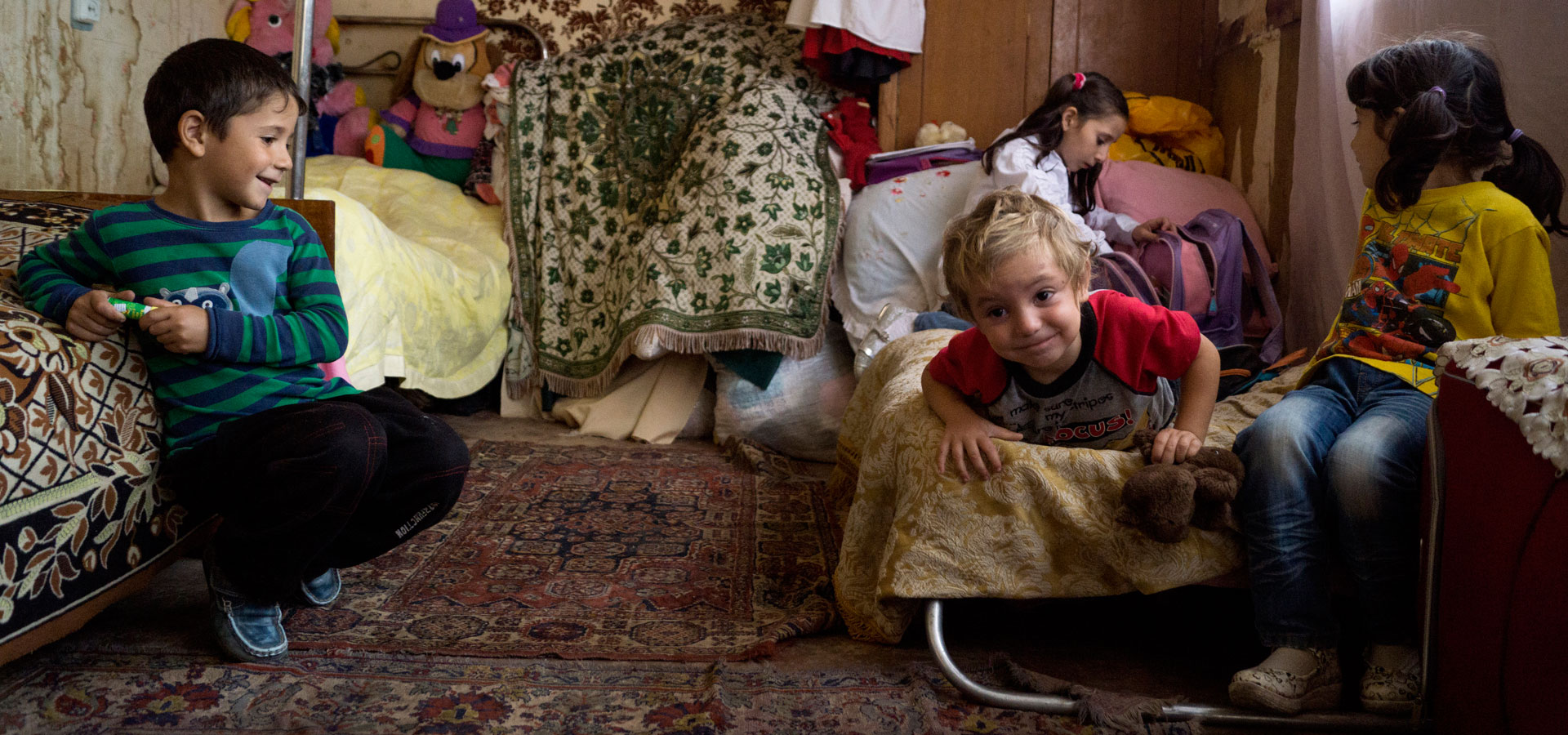
A batch of colorful wash hangs from the clothesline. The small animal shed is opposite. Four calves somehow squeeze inside. “Now they’ve grown up and are small bulls. The space is narrow, but what can we do? Today, a cow is worth more than our trailer. You can’t buy one,” Elmira says.
The faded letters CCCP (USSR) are written on the trailer. A few months back the family house burnt down and the Armavir Provincial Government gave them this trailer to live in.
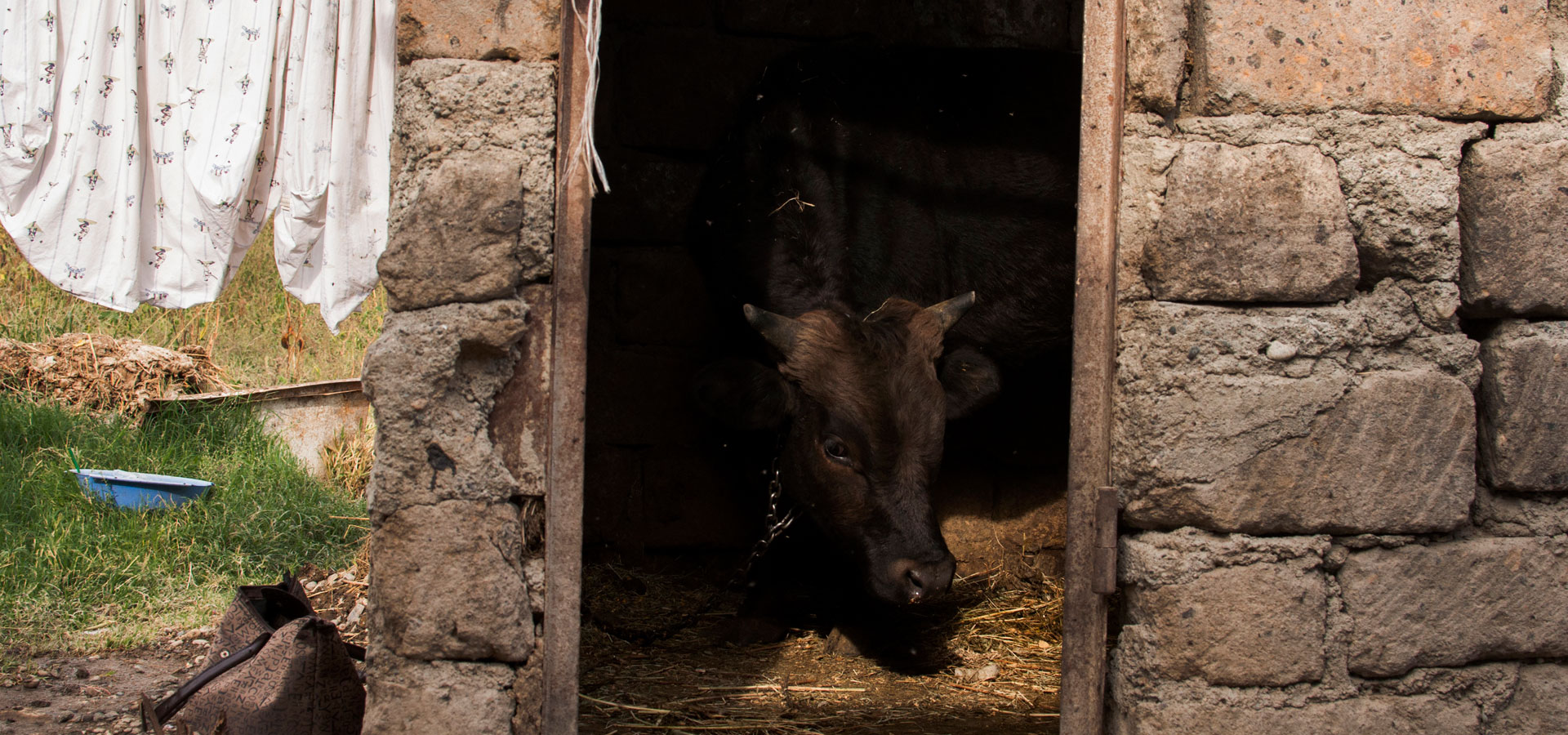
Armen Zakaryan, 36, hails from the Armavir village of Djrarbi. Elmira, 32, was born in Aknashen. They married in 2004 and relocated to Aknashen eight years ago. They originally lived in a tomik and then Armen started to build a house next to it. Little by little, Armen worked n the house until it was completed last year. It burnt down this past February.
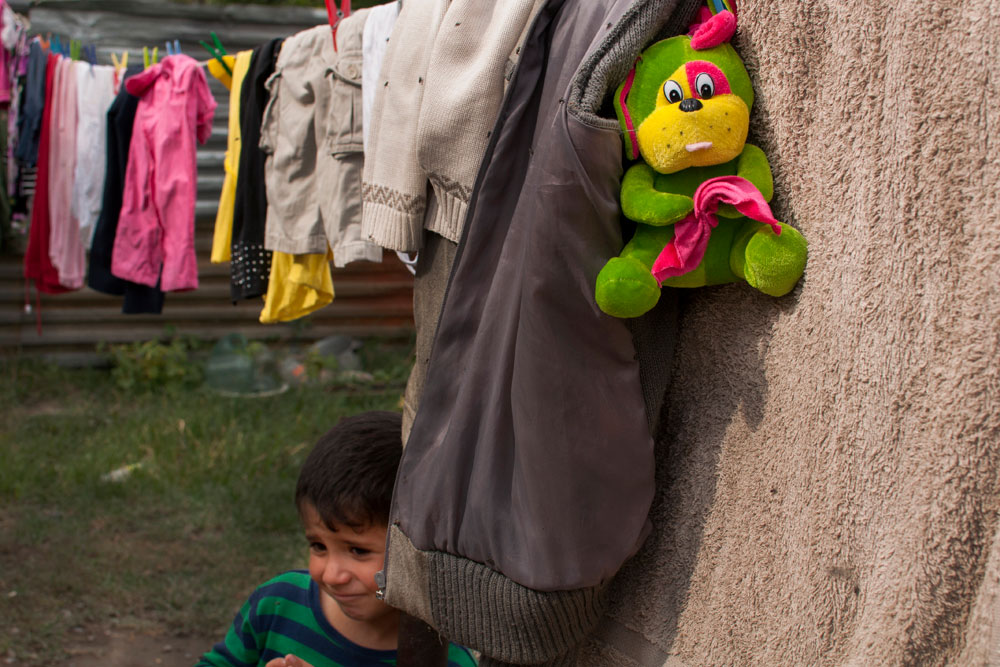
“I wasn’t at home and the children were at school. Elmira wasn’t at home either. Half way home they told me that the house had caught fire. It was an electrical short,” says Armen. Norayr and Narek were home when the accident occurred. Elmira says that Norayr was able to get his brother out of the house on time.
I look at the burnt house. Armen says that he’s built a small room linked to the old trailer they gave him just so the kids don’t get underfoot. “I was so out of sorts. I even was too embarrassed to ask if the trailer would be ours or if they would take it back. There’s a good chance we can keep it,” says Armen.
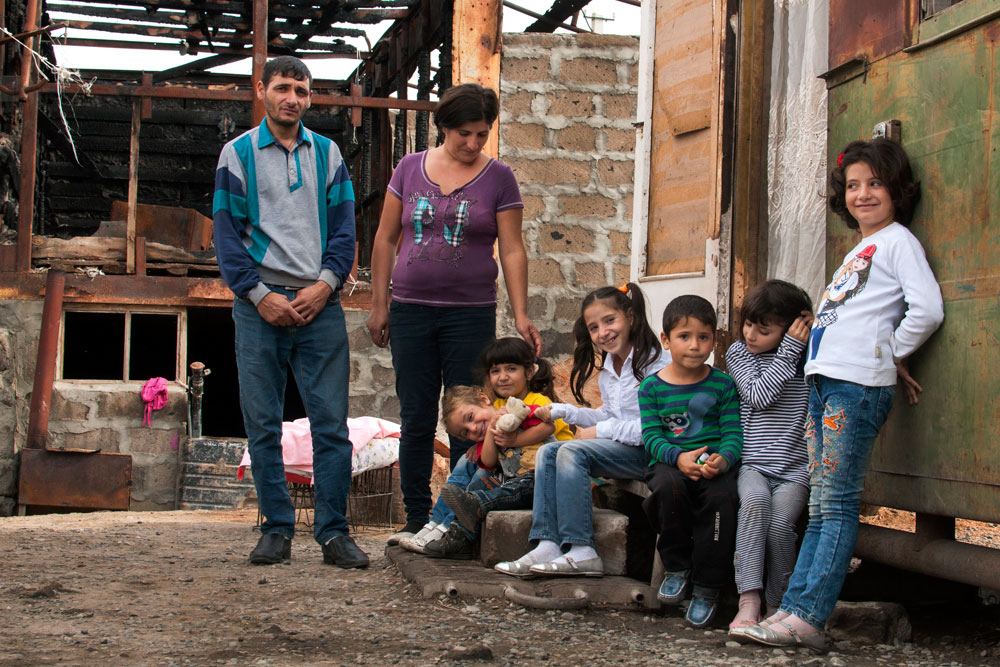
The three beds barely fit in the trailer. Three kids share one bed and the other three, the other bed. When it rains, water drips from the roof. Elmira says she gets out the buckets and pans to catch the water. During the summer, the trailer is like an oven.
The family doesn’t like to complain. Often, when answering my questions, they gaze at the ground. Elmira puts a brave face on and says, “We get by”. She confesses, however, that sometimes there isn’t anything to eat for days on end. This is usually when Armen is sick and can’t get to work. Elmira says her husband gets periodic back spasms. “They get so bad that he can’t move. We give him injections,” she says.
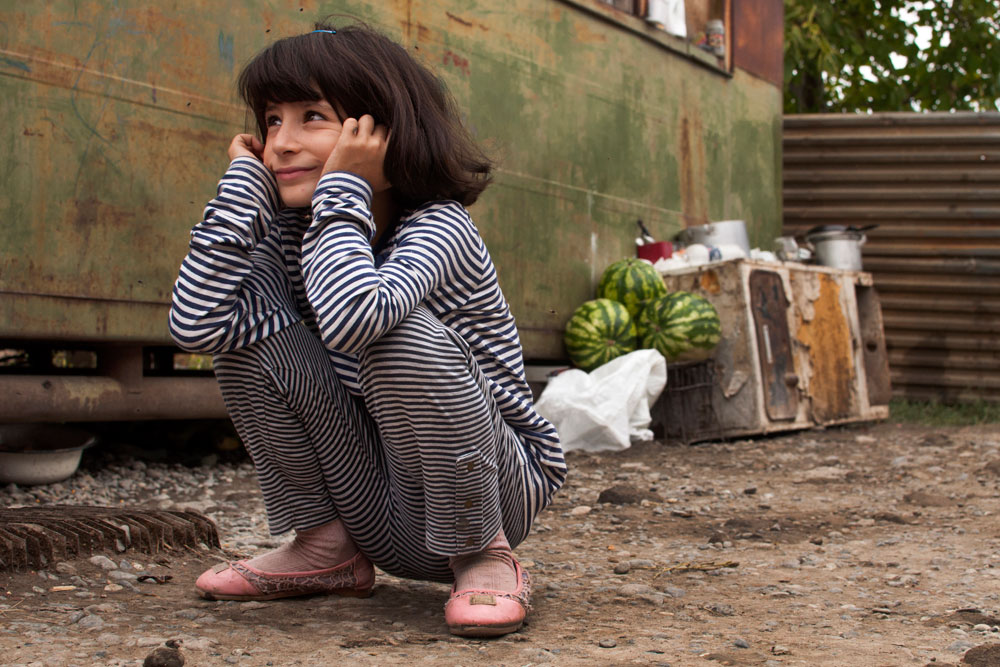
Last year, they grew tomatoes in a nearby plot. The family invested 25,000 drams ($53) and wound up with two crates. “We didn’t cover our initial cost. We sold one kilo of tomatoes for 20-30 drams. In the end we made 15,000 drams,” Elmira complained.
I walk with Elmira down a path in the garden. The kids have gathered under some apricot trees. “Those trees aren’t ours. Our land ends at the corn stalks.”
This year, the family mostly planted eggplant and corn. It was a dry year and the crop was spotty. “It doesn’t matter. Something will turn up. I’m an optimist,” Elmira says.
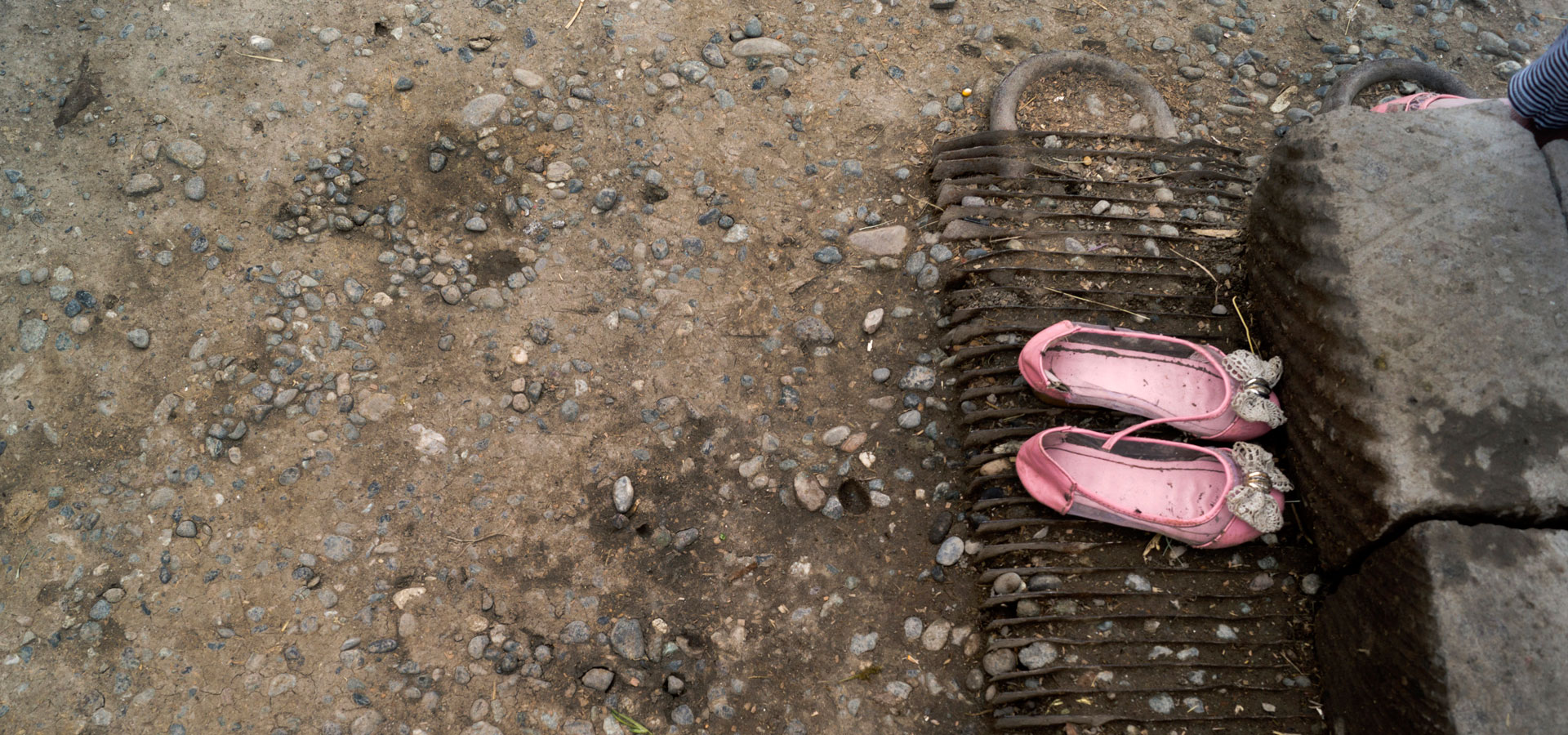
The family receives a monthly allowance of 61,000 drams for the children. Elmira says they haven’t received the allowance ever since the house burnt down four months ago.
“I went to social services in Etchmiadzin and they told me to bring in the paperwork to get the allowance. I told them that everything was burnt to a crisp. We’re working on it,” says Elmira.
Elmira tells me that she sometimes is asked why she had so many children given the way they live. “Many times I just don’t answer those people. But in my heart I say to myself ‘what business is it of yours?’ My kids are my pride and joy. When I’m sick all I need is for my girls to say dear mom and I feel better,” says Elmira gazing at her children.
We talk to the kids. I ask them what they want to be when they grow up. Vera and Ani say they want to become doctors; Anahit, a beautician; Gayaneh, a reporter; Norayr, a policeman; and Narek just laughs. He doesn’t know yet.
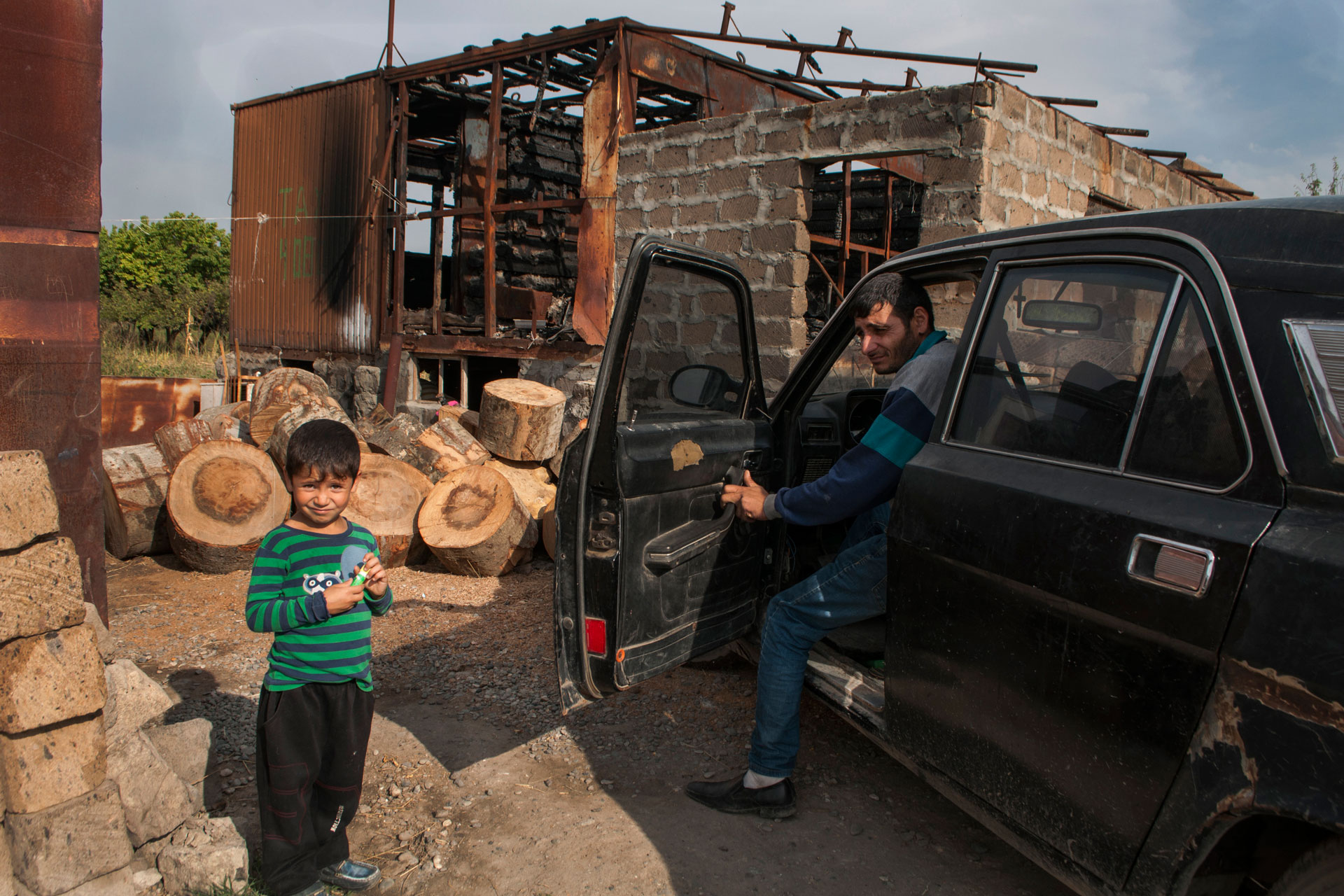
“There are those who live in a house but don’t get along. There are those who live in a tomik, us, for example, and haven’t argued all this time. Sure, we live in a tomik, but what’s important isn’t the structure but the love and warmth inside,” Elmira says with a grin.
Photos: Narek Aleksanyan
 Videos
Videos Photos
Photos




Comments (3)
Write a comment